The Vassar Community Begins the Academic Year at Convocation
Vassar seniors, first-years, and hundreds of others in the Vassar community celebrated diversity and a commitment to the values of the liberal arts as they gathered in the Chapel on September 4 for the College’s 159th Convocation.
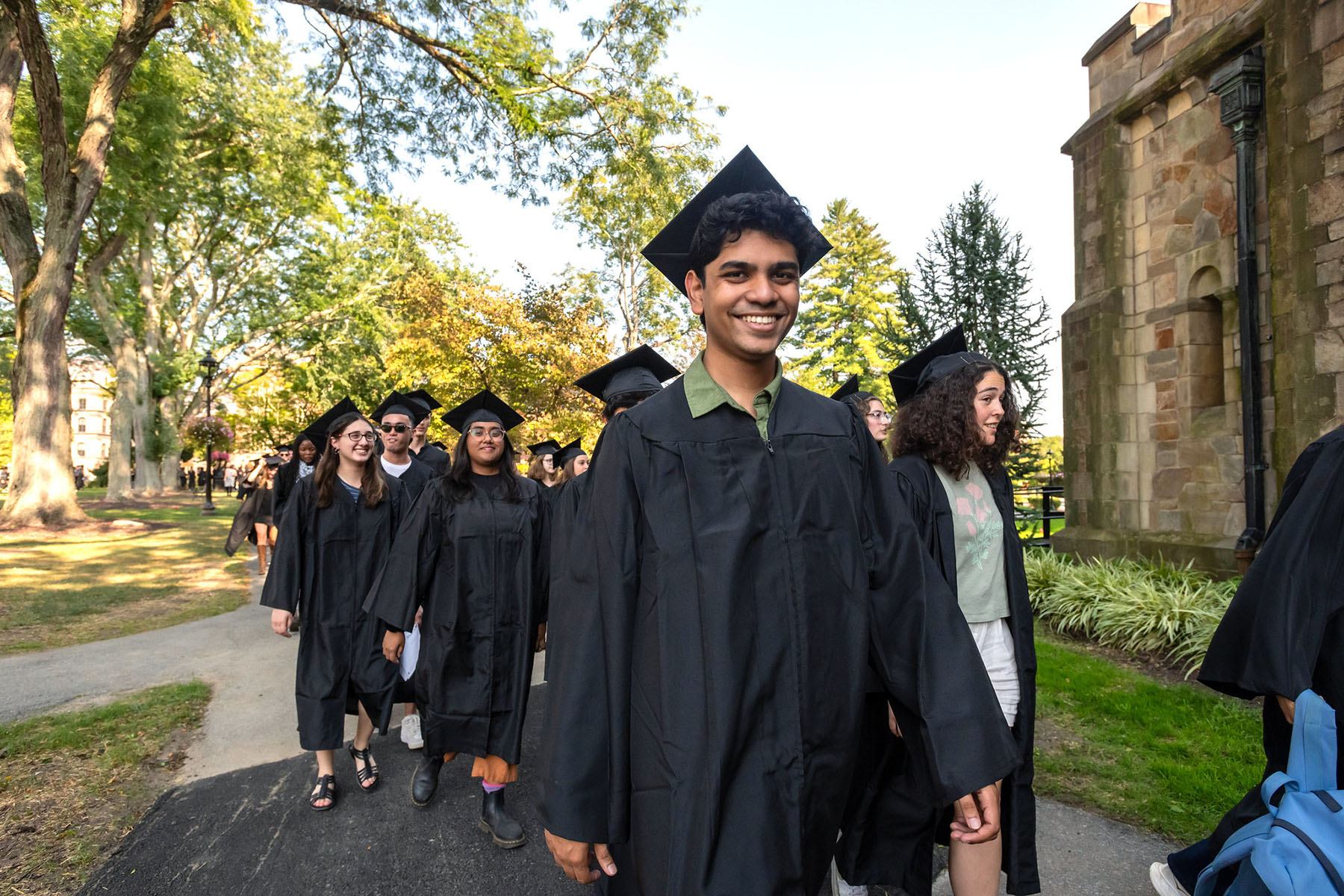
In his address to the approximately 1,200 in attendance, Professor of Political Science Himadeep Muppidi said the decades of political struggles in his native India—and the current rise of intolerance and hate here in the United States—had reinforced his belief that a liberal arts mindset, which he termed “globality,” was the key to combating people’s fear of those who look or worship differently.
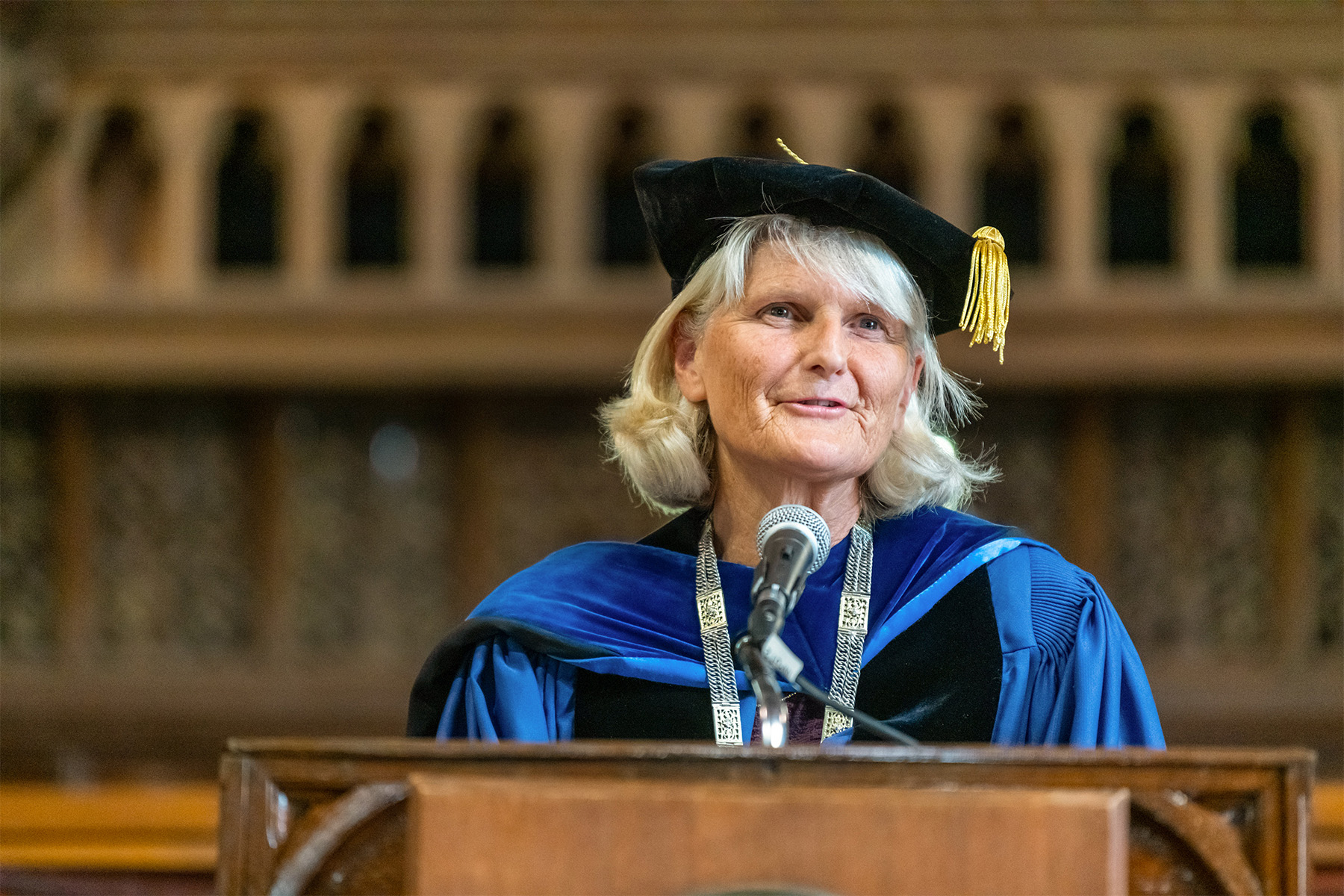
Muppidi opened his talk by relating an experience he had on the day Prime Minister Indira Gandhi was assassinated by her Sikh security guards in 1984. He said he had taken a bus to the neighborhood where the prime minister had lived. On his return trip to Jawaharlal Nehru University (JNU), where he was a student, Muppidi saw angry mobs on the street who were intent on seeking revenge against anyone who was a Sikh. When the bus driver noticed there was a Sikh teenager on the bus, he advised the young man to hide under a seat. The teen did so and then exited the bus one stop before members of a mob boarded the bus.
Muppidi said the incident had caused him to reflect on how little he understood about the political dynamics of his country. “The driver understood things about the political situation that I, a student of politics, was barely conscious of,” he said. “I had been trained to think of mobs as composed of ignorant and illiterate people acting on irrational passions. Violence, I had assumed till then, emerged only from the unenlightened, but the leaders of these mobs, the people who planned and organized these attacks, were educated and modern Indians.”
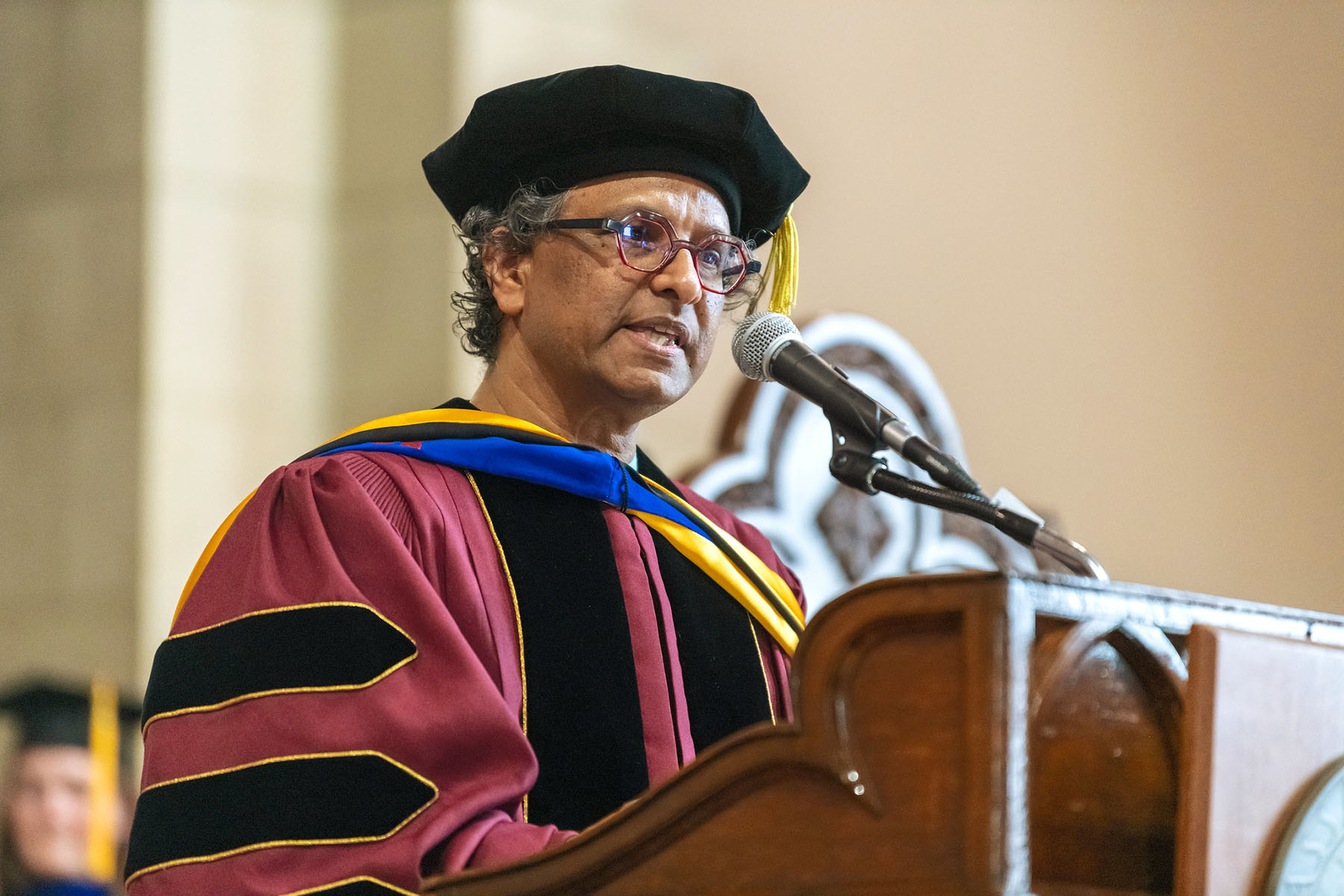
When he arrived back on the JNU campus, Muppidi discovered the students, faculty, and staff had made plans to protect themselves from the violence that was happening in New Delhi. “The thoughtful actions of the students, faculty, and staff turned JNU into an island of sanity in a sea of political madness,” he said. “It was the globality-oriented education of JNU that made the crucial difference.”
Muppidi said that while JNU “was the most intensely political space I have ever known—with student groups representing a range of ideologies—it was also deeply nonviolent.” He said the reason for this was rooted in an observation made by Palestinian-American philosopher Edward Said, who observed, “No one today is purely one thing.
“That ‘more,’ that excess, those additional possibilities latent within us, are what make us receptive to the richness and diversity of the world outside, and an education oriented towards globality, a true liberal arts education, nurtures that excess,” he said.
Muppidi asked the students in the audience to keep Said’s words in mind as they continued their academic journeys. “Seniors: I hope you have taken full advantage of the opportunities available here, through a liberal arts education, to craft an imaginatively wealthy life ahead,” he said. “If not, you have two full semesters to make up. First years: Immerse yourself in the globality, in the finer political, ethical, and aesthetic sensibilities, in the diversions and diversities, offered by the liberal arts community here. It is good for you, good for the political communities you are part of, and good for the world.”
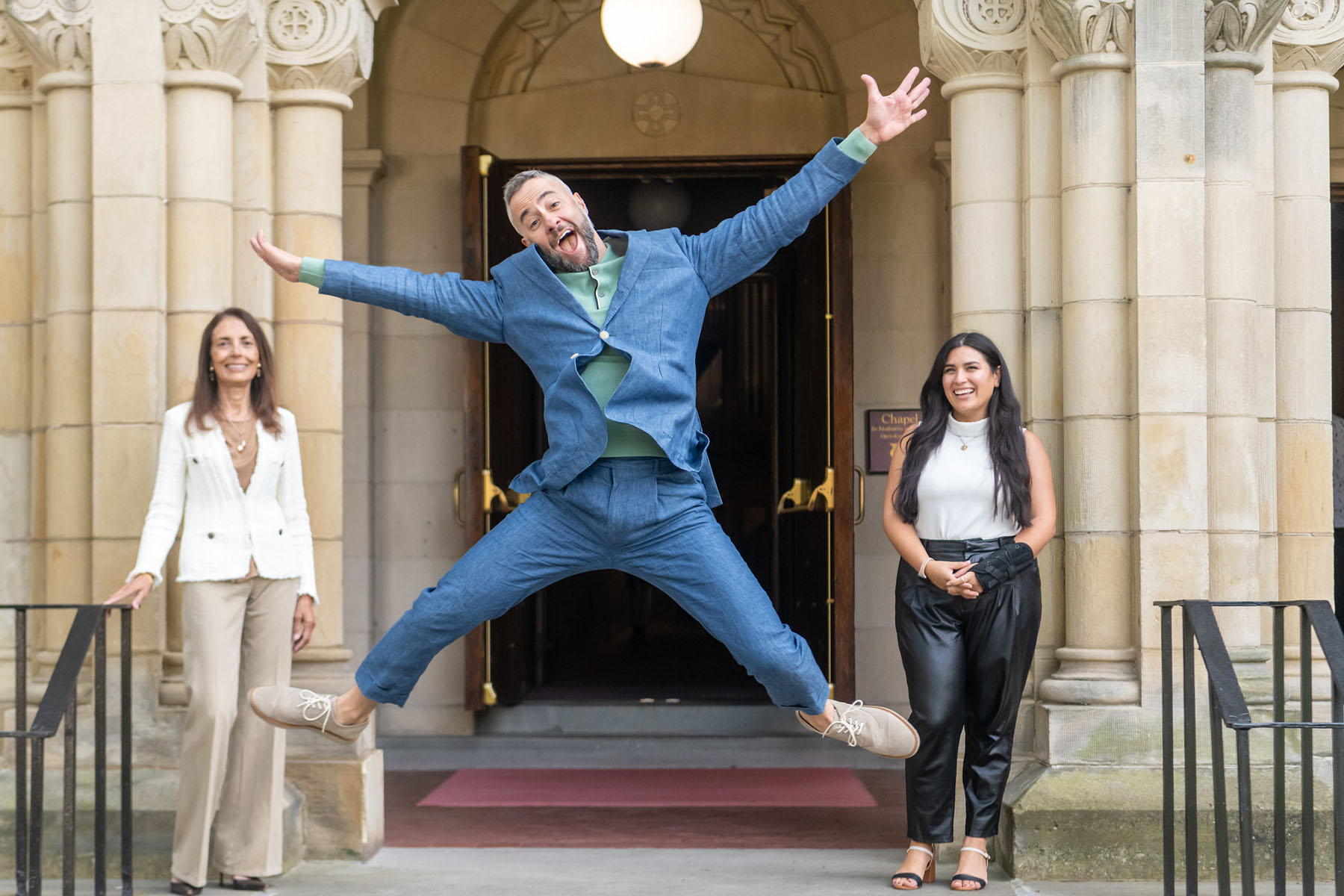
Before Muppidi’s talk, members of the Alumnae/i Association of Vassar College presented David Ambroz ’02 with the AAVC’s 2024 Spirit of Vassar Award. Ambroz, who was homeless for part of his childhood and underwent abuse in foster homes, has been an outspoken advocate for those combating child poverty and working for reforms in the foster care system. In 2015 President Barack Obama presented him with a White House Champion of Change Award.
In presenting Ambroz with the Spirit of Vassar Award, AAVC President Monica Vachher ’77 noted that he was “not exactly your typical college freshman” when he arrived on the Vassar campus. “He had been a four-year-old begging for food in Grand Central Station with his mother and then became a champion of reform of the foster care system.”
In his acceptance speech, Ambroz exhorted the audience to join him in advocating for America’s 10 million children living in poverty: “Other than the laws of physics, everything is a choice. Child poverty is a choice. … I want us to make a different choice. I want us to make real what is the spirit of Vassar, which in my mind is a vision of a just and humane world.”
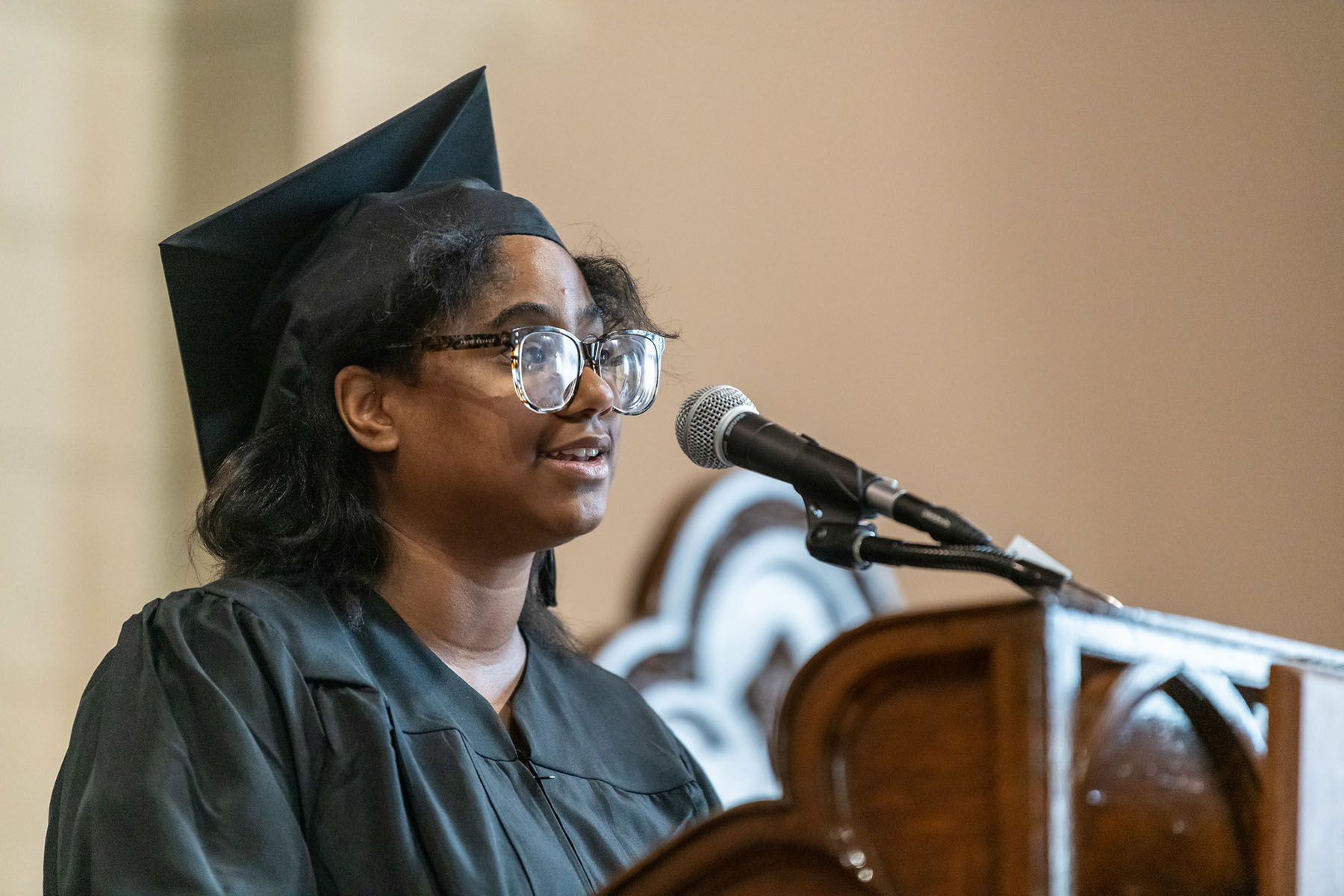
Earlier that day, in a talk he gave in the Jade Parlor, Ambroz had mesmerized an intimate gathering of students, fellow alums, and a few of his former professors as he read a chapter from his memoir, A Place Called Home, about wandering the streets of Manhattan on Christmas night as a homeless five-year-old. His voice breaking, and at times altogether halting, Ambroz described what it was like to be one of the “night ghosts” seeking warmth from the fleeting blast of air from a subway grating. “Night is the worst time to be outside without a home,” he recounted. Ambroz also described how difficult it was to apply to college, when, as a newly emancipated foster child, he had barely anything the applications asked for—from a high school diploma to parents. While almost all of the schools sent back his application materials, “Vassar sent me a love letter,” Ambroz recalled, “which I still have.”
Students in attendance at Convocation also heard words of welcome and advice from Vassar Student Association (VSA) President Emily Doucet ’25. “I challenge you to explore a part of Vassar you haven’t experienced before,” Doucet said. “Many of us in the senior class have leadership positions that give us the opportunity to make Vassar better than we found it. It’s a place that needs to work for you, so let’s make it a year to remember.”